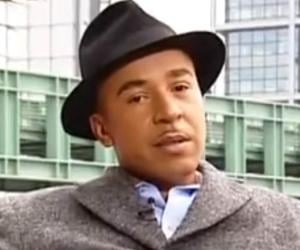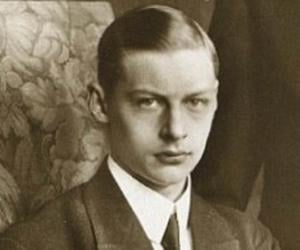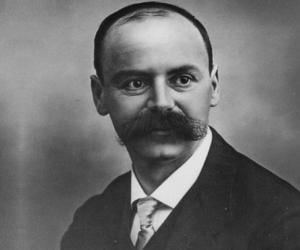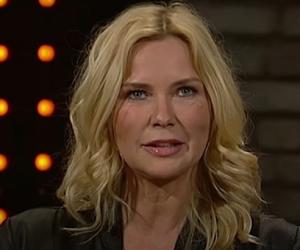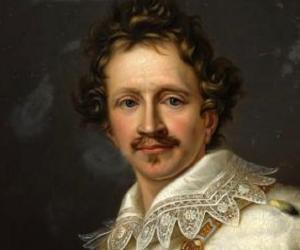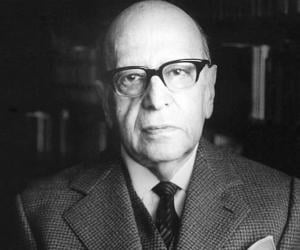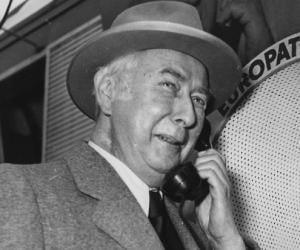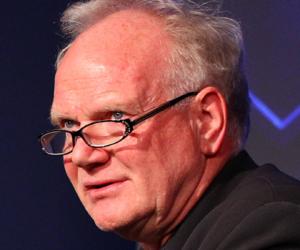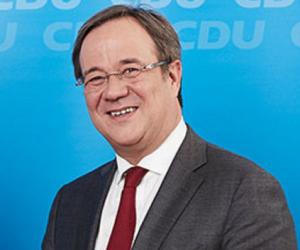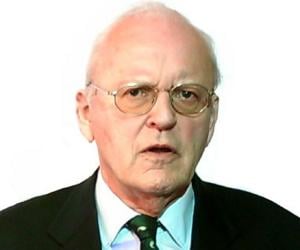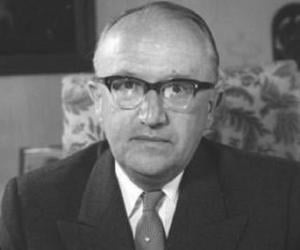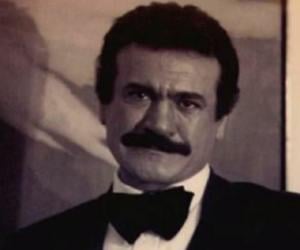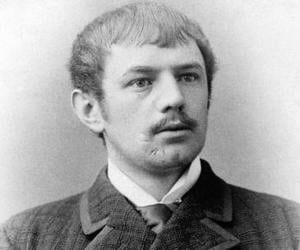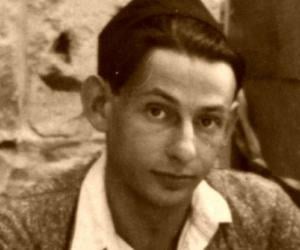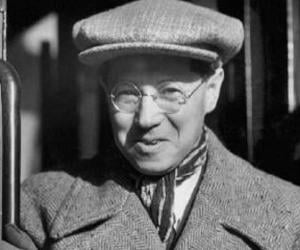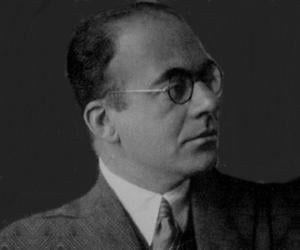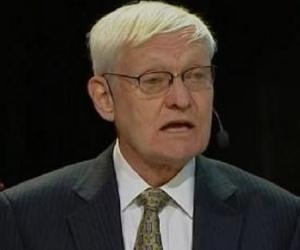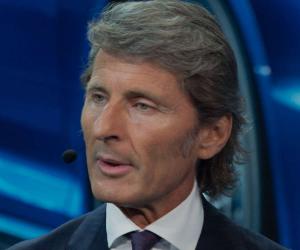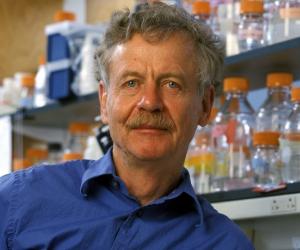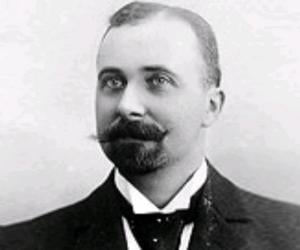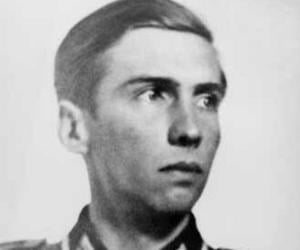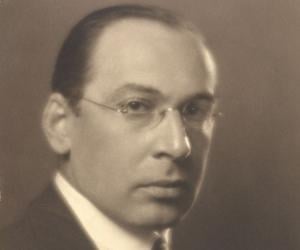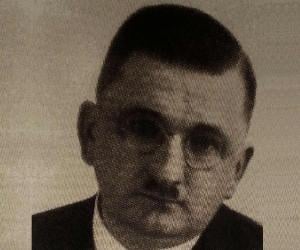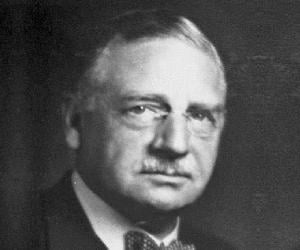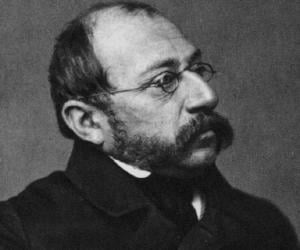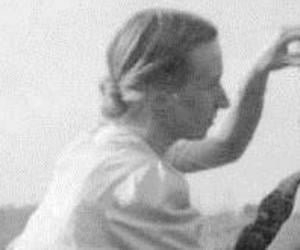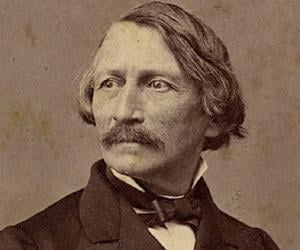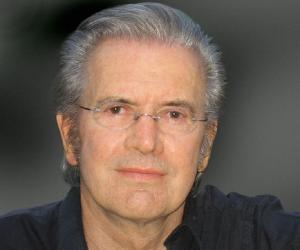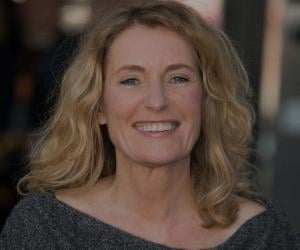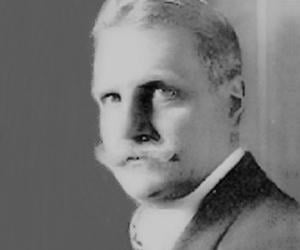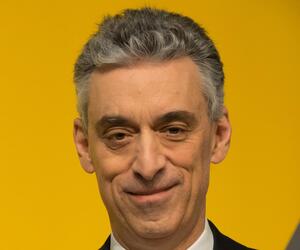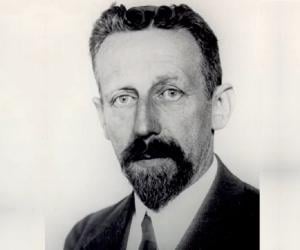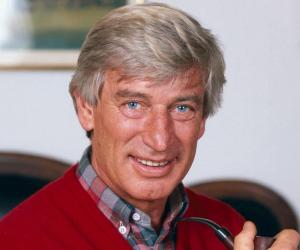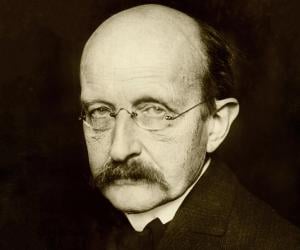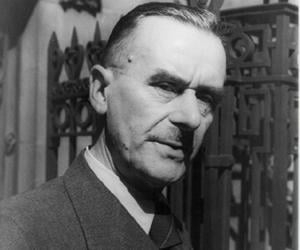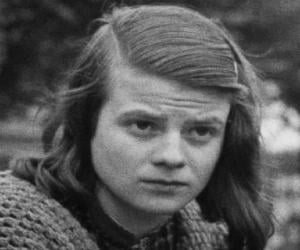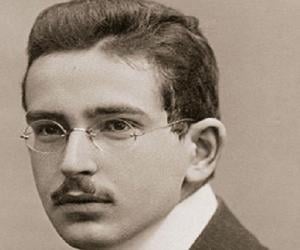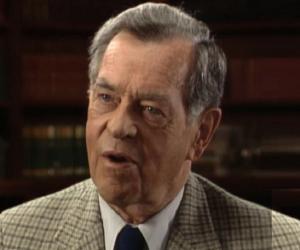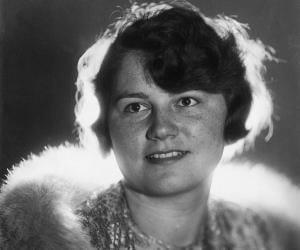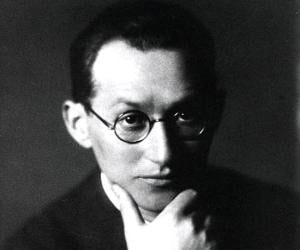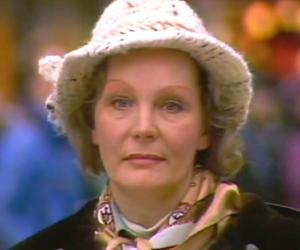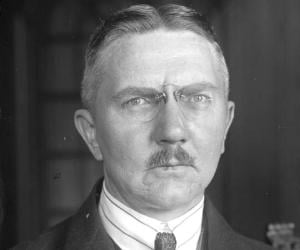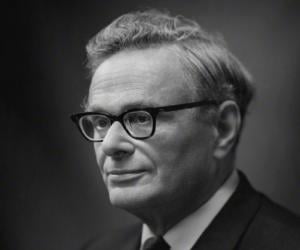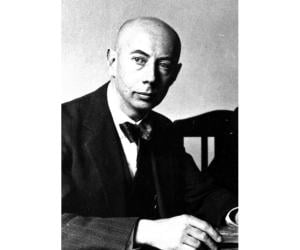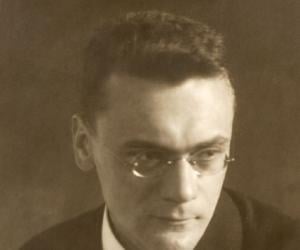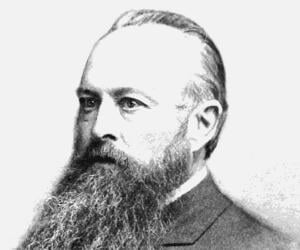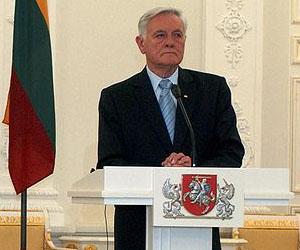Ludwig Maximilian University Of Munich
Discover the notable alumni of Ludwig Maximilian University Of Munich. The list includes people like Kurt Lewin, Prince Wilhelm of Prussia, Bartholomew I of Constantinople, Dietrich Eckart & Theodor Heuss. This list of notable alumni is loosely sorted by popularity and has people from different domains of life, such as miscellaneous, intellectuals & academics, scientists, leaders and media personalities etc.
Vote for Your Favourite Ludwig Maximilian University Of Munich
Right IconThis ranking is based on an algorithm that combines various factors, including the votes of our users and search trends on the internet.
1
Max Planck(German Theoretical Physicist and Originator of 'Quantum Theory')
Birthdate: April 23, 1858
Sun Sign: Taurus
Birthplace: Kiel, Germany
Died: October 4, 1947
German theoretical physicist Max Planck is remembered for originating the quantum theory of physics, which earned him the 1918 Nobel Prize in Physics. He laid down concepts such as the Planck constant and the Planck postulate. The Kaiser Wilhelm Society was later renamed Max Planck Society in his honor.
2
Thomas Mann(German Novelist Who Won the 1929 Nobel Prize in Literature)
Birthdate: June 6, 1875
Sun Sign: Gemini
Birthplace: Lübeck, Germany
Died: August 12, 1955
German author Thomas Mann, known for his epic novels, was part of the Hanseatic Mann family of authors. He depicted his own family in his novel Buddenbrooks. He won the 1929 Nobel Prize in Literature. During Hitler’s reign, he fled to Switzerland and then to the U.S.
Birthdate: May 9, 1921
Sun Sign: Taurus
Birthplace: Forchtenberg, Germany
Died: February 22, 1943
Sophie Scholl was a German anti-Nazi political activist who was involved with a non-violent resistance group called White Rose. Scholl was executed by guillotine at the age of 21 for distributing anti-war leaflets. Since her death, Sophie Scholl has been viewed as an iconic figure. Her life and work have inspired several films, including Sophie Scholl – The Final Days.
Birthdate: July 15, 1892
Sun Sign: Cancer
Birthplace: Berlin, Germany
Died: September 26, 1940
Walter Benjamin was a German Jewish essayist, philosopher, and cultural critic. An eclectic thinker, Benjamin made significant contributions to literary criticism, aesthetic theory, and historical materialism. Although Benjamin's work did not earn much recognition during his lifetime, it continues to be revered by academics several years after his death.
5
Joseph Campbell(American Writer Best Known for His Book ‘The Hero with a Thousand Faces’)
Birthdate: March 26, 1904
Sun Sign: Aries
Birthplace: White Plains, New York, United States
Died: October 30, 1987
Joseph Campbell taught literature at the Sarah Lawrence College and specialized in comparative mythology and comparative religion. His notable works include The Hero with a Thousand Faces and the four-volume Historical Atlas of World Mythology. He also worked on the miniseries, The Power of Myth, with Bill Moyers.
6
Geli Raubal(Austrian Woman Who Was the Half-Niece of Adolf Hitler)
Birthdate: July 4, 1908
Sun Sign: Cancer
Birthplace: Linz, Austria
Died: September 18, 1931
Geli Raubal was the half-niece of Nazi leader Adolf Hitler and the daughter of Hitler’s half-sister, Angela Raubal. She spent her childhood in Hitler’s home, where her mother worked as a housekeeper. She is said to have committed suicide after Hitler forbade her to pursue singing lessons in Vienna.
Birthdate: September 9, 1890
Sun Sign: Virgo
Birthplace: Mogilno, Poland
Died: February 12, 1947
Legendary social psychologist Kurt Lewin is remembered for his field theory of behavior. He was a pioneer in the research on group dynamics. While he had served in the army in World War I, an injury made him get back to university to complete his PhD.
8
Edda Göring(Only Child of German Politician Hermann Göring and Actress Emmy Sonnemann)
Birthdate: June 2, 1938
Sun Sign: Gemini
Birthplace: Berlin, Germany
Died: December 21, 2018
Edda Göring was the only child of Nazi Party member Hermann Göring and actor Emmy Sonnemann. She grew up amidst luxury and received expensive art as gifts as a child, one of which, a painting of Madonna and Child by Lucas Cranach the Elder, dragged her into legal disputes.
Birthdate: January 22, 1877
Sun Sign: Aquarius
Birthplace: Tinglev, Denmark
Died: June 3, 1970
German banker Hjalmar Schacht was appreciated for his role in saving the Weimar Republic from inflation and later served as the Reichsminister of Economics under Adolf Hitler. Following as assassination attempt on Hitler, her was imprisoned, but was later freed and then set up his own bank in Düsseldorf.
10
Lou Bega
(German Singer Best Known for His 1999 Song 'Mambo No.5')
Birthdate: April 13, 1975
Sun Sign: Aries
Birthplace: Munich, Germany
Lou Bega became an overnight sensation with the 1999 international chartbuster Mambo No. 5, based on Pérez Prado's 1949 original. Born in Germany, Lou was the son of a Ugandan father and a Sicilian mother. Initially inspired by rap and R&B, he deviated to mambo music after a trip to Miami.
11
Prince Wilhelm of Prussia
(Prince)
Birthdate: July 4, 1906
Sun Sign: Cancer
Birthplace: Marmorpalais, Potsdam, Germany
Died: May 26, 1940
12
Karl Schwarzschild
(German Physicist and Astronomer)
Birthdate: October 9, 1873
Sun Sign: Libra
Birthplace: Frankfurt, Germany
Died: May 11, 1916
Karl Schwarzschild was a German astronomer and physicist. He is remembered for his contributions to the general theory of relativity; Schwarzschild came up with the first exact solution to the Albert Einstein field equations. He also contributed immensely to the theory of black holes.
13
Inaara Aga Khan
(Aga Khan IV's ex wife)
Birthdate: April 1, 1963
Sun Sign: Aries
Birthplace: Frankfurt, Germany
14
Hans Adolf Krebs(British Biologist Who was a Pioneer Scientist in the Study of Cellular Perspiration)
Birthdate: August 25, 1900
Sun Sign: Virgo
Birthplace: Hildesheim, Germany
Died: November 22, 1981
Born to an ENT surgeon in Germany, Hans Adolf Krebs followed in his father’s footsteps and studied medicine. After fleeing Nazi Germany, he went to England, where he joined the University of Cambridge as a researcher. The Nobel Prize-winning scientist is remembered for his groundbreaking discovery of cellular respiration.
Birthdate: June 10, 1965
Sun Sign: Gemini
Birthplace: Solingen, Germany
Height: 5'10" (178 cm)
16
Ludwig I of Bavaria
(King)
Birthdate: August 25, 1786
Sun Sign: Virgo
Birthplace: Strasbourg, France
Died: February 29, 1868
17
Robert Schuman
(Politician)
Birthdate: June 29, 1886
Sun Sign: Cancer
Birthplace: Clausen, Luxembourg
Died: September 4, 1963
18
Gustav Ludwig Hertz(German Experimental Physicist Who Won the Nobel Prize for His Work on Inelastic Electron Collisions in Gases)
Birthdate: July 22, 1887
Sun Sign: Cancer
Birthplace: Hamburg, Germany
Died: October 30, 1975
Gustav Ludwig Hertz was a German experimental physicist best known for his work on inelastic electron collisions in gasses, in collaboration with James Franck. They received the 1925 Nobel Prize in Physics. Hertz worked at the University of Berlin and served in the military during World War I. He was a Member of the German Academy of Sciences.
19
Max Horkheimer
(German Philosopher and Sociologist Famous for His Work in 'Critical Theory')
Birthdate: February 14, 1895
Sun Sign: Aquarius
Birthplace: Zuffenhausen, Stuttgart, Germany
Died: July 7, 1973
Max Horkheimer was a German philosopher and sociologist. He is best known for his work in critical theory as a member of the Frankfurt School of social research. He addressed authoritarianism, economic disruption, militarism, and environmental crisis in his works. He had a successful academic career and remained an influential figure until his death. He was married to Rose Riekher.
20
Theodor Heuss
(First President of West Germany (1949 -1959))
Birthdate: January 31, 1884
Sun Sign: Aquarius
Birthplace: Brackenheim, Germany
Died: December 12, 1963
Apart from being the first president of West Germany, Theodor Heuss, the Free Democratic Party leader, also framed the new constitution of West Germany after World War II. Previously, he was a political journalist and was targeted by Hitler. Even his books were burned for being against German interests.
21
Ulrich Beck
(German Sociologist and One of the Most Cited Social Scientists in the World During His Lifetime)
Birthdate: May 15, 1944
Sun Sign: Taurus
Birthplace: Slupsk, Poland
Died: January 1, 2015
Ulrich Beck was a German sociologist whose work focused on questions of uncertainty, ignorance, and uncontrollability in the modern age. One of the most cited sociologists during his lifetime, Beck is credited with coining the terms second modernity and risk society. Over the course of his career, Ulrich Beck was honored with many prestigious awards like the Schader Prize.
22
Armin Laschet
(Leader of the Christian Democratic Union)
Birthdate: February 18, 1961
Sun Sign: Aquarius
Birthplace: Aachen, Germany
Height: 5'8" (173 cm)
23
Roman Herzog
(President of Germany (1994 - 1999))
Birthdate: April 5, 1934
Sun Sign: Aries
Birthplace: Landshut, Germany
Died: January 10, 2017
A doctorate in law, Roman Herzog had initially been a teaching assistant and then a political science professor. Stepping into politics later, he was elected as the first German president following the reunification of Germany. Apart from an honorary knighthood, he also won the Charlemagne Prize.
24
Karl von Frisch(German-Austrian Ethologist and 1973 Winner of Nobel Prize in Physiology / Medicine)
Birthdate: November 20, 1886
Sun Sign: Scorpio
Birthplace: Vienna, Austria
Died: June 12, 1982
Nobel Prize-winning ethologist Karl von Frisch is best remembered for his research on communication among bees. He was the first to observe that bees communicate the location of food to other bees by a form of “dance.” He penned down his studies in books such as The Dancing Bees.
25
Lord Acton(Historian and Member of Parliament for Bridgnorth)
Birthdate: January 10, 1834
Sun Sign: Capricorn
Birthplace: Naples, Italy
Died: June 19, 1902
Lord Acton was an English Catholic historian, writer, and politician. Born to a prominent family in Naples, he was the son of a British baronet. He studied at the Ludwig Maximilian University of Munich, where he developed a deep love of historical research. After building a career as a historian and writer, he ventured into politics as well.
26
Walter Hallstein
(German Diplomat, Academic, and Statesman)
Birthdate: November 17, 1901
Sun Sign: Scorpio
Birthplace: Mainz, Germany
Died: March 29, 1982
27
Fereydoun Farrokhzad
(Known for his variety TV show 'Mikhak-e Noghrei' (The Silver Carnation) which introduced many artists)
Birthdate: October 7, 1936
Sun Sign: Libra
Birthplace: Tehran, Iran
Died: August 4, 1992
Birthdate: March 23, 1868
Sun Sign: Aries
Birthplace: Neumarkt in der Oberpfalz, Germany
Died: December 26, 1923
German anti-Semitic völkisch poet, playwright, journalist, publicist, and political activist Dietrich Eckart, one of Adolf Hitler's earliest mentors who Hitler acknowledged as the spiritual co-founder of Nazism, founded German Workers' Party, the precursor of Nazi Party. Eckart was the original publisher of the Nazi Party newspaper Völkischer Beobachter, and lyricist of Sturmlied, the de facto anthem of the Sturmabteilung.
Birthdate: November 3, 1926
Sun Sign: Scorpio
Birthplace: Kaunas, Lithuania
Former Lithuanian president Valdas Adamkus had fought against the Soviet army during World War II. After fleeing to Germany, he studied in Munich and then migrated to the U.S., where he earned a civil engineering degree. Among his many accolades are honorary doctorates from countless foreign universities.
30
Gershom Scholem
(Israeli Philosopher, Historian and Founder of the Modern, Academic Study of 'Kabbalah')
Birthdate: December 5, 1897
Sun Sign: Sagittarius
Birthplace: Berlin, Germany
Died: February 21, 1982
Gershom Scholem was a German-born Israeli philosopher and historian. He is much respected as the founder of the modern academic study of Kabbalah. He became the first professor of Jewish Mysticism at the Hebrew University of Jerusalem. He was lifelong friends with fellow philosopher Walter Benjamin and was devastated when the latter died by suicide in 1940.
31
Lion Feuchtwanger
(Novelist)
Birthdate: July 7, 1884
Sun Sign: Cancer
Birthplace: Munich, Germany
Died: December 21, 1958
32
Erwin Panofsky
(German Art Historian)
Birthdate: March 30, 1892
Sun Sign: Aries
Birthplace: Hannover, Germany
Died: March 14, 1968
German art historian Erwin Panofsky is best remembered for his work on iconography. He moved to the U.S. in the wake of the rise of the Nazis. His studies also included Dutch painting and Gothic architecture. His supposedly lost manuscript Habilitationsschrift was recovered years later in a Nazi safe.
33
Joachim Frank
(Nobel Prize-Winning German-American Biophysicist Known for Developing Cryo-EM)
Birthdate: September 12, 1940
Sun Sign: Virgo
Birthplace: Weidenau, Siegen, Germany
Nobel Prize-winning German-American biophysicist Joachim Frank is best known for developing single-particle cryo-electron microscopy, or cryo-EM. He has been associated with Columbia University as a professor for a long time and is an Honorary Fellow of the Royal Microscopical Society. He has also helped ascertain the structure of ribosomes.
34
Stephan Winkelmann
(Chief executive officer and Businessperson)
Birthdate: October 18, 1964
Sun Sign: Libra
Birthplace: Berlin, Germany
35
Rudolf Jaenisch
(A Pioneer of Transgenic Science)
Birthdate: April 22, 1942
Sun Sign: Taurus
Birthplace: Wölfelsgrund, Germany
Rudolf Jaenisch is a German Professor of Biology currently working at the Massachusetts Institute of Technology, USA. He is also one of the founding members of the prestigious Whitehead Institute for Biomedical Research, which aims at improving human health through biomedical research. A pioneer of transgenic science, Jaenisch has been creating genetically engineered mice to study neurological diseases and cancer.
36
Felix Hoffmann
(German Chemist and Inventor)
Birthdate: January 21, 1868
Sun Sign: Aquarius
Birthplace: Ludwigsburg, Germany
Died: February 8, 1946
Felix Hoffmann was a German chemist best remembered for re-synthesizing diamorphine, which was later popularized as heroin. Hoffmann is also known for synthesizing aspirin, although it is still unclear whether he synthesized it on his own or under the direction of Arthur Eichengrün. In 2002, Felix Hoffmann was inducted into the US National Inventors Hall of Fame.
37
Alexander Schmorell
(Russian-German Revolutionary Who Opposed the Nazi German Regime)
Birthdate: September 16, 1917
Sun Sign: Virgo
Birthplace: Orenburg, Russia
Died: July 13, 1943
Alexander Schmorell was a Russian-German revolutionary best remembered for co-founding the popular resistance group White Rose, which opposed the Nazi German regime. He was executed by the Nazis and was later glorified as a saint by the Russian Orthodox Church Outside Russia. Alexander Schmorell is also venerated throughout the world by Orthodox Christians.
38
Alfred Einstein
(German-American Musicologist and Music Editor)
Birthdate: December 30, 1880
Sun Sign: Capricorn
Birthplace: Munich, Germany
Died: February 13, 1952
39
Fritz Gerlich
(German Historian and Journalist)
Birthdate: February 15, 1883
Sun Sign: Aquarius
Birthplace: West Pomeranian Voivodeship, Poland
Died: June 30, 1934
40
Otto Loewi
(American Pharmacologist and Psychobiologist)
Birthdate: June 3, 1873
Sun Sign: Gemini
Birthplace: Frankfurt, Germany
Died: December 25, 1961
Otto Loewi was a German-born American psycho-biologist and pharmacologist, whose research on neurology proved that chemicals were involved in the transmission of nerve impulses. Working with Sir Henry Dale, he established the role of acetylcholine as an endogenous neurotransmitter, co-winning the Nobel Prize for it. Later, he worked on diabetes and devised Loewi’s test for the detection of pancreatic disease.
Birthdate: February 5, 1808
Sun Sign: Aquarius
Birthplace: Germering, Germany
Died: September 23, 1885
42
Eva Justin
(German Anthropologist Who Specialised in Scientific Racism)
Birthdate: August 23, 1909
Sun Sign: Virgo
Birthplace: Dresden, Germany
Died: September 11, 1966
Eva Justin was a German anthropologist who specialised in scientific racism. Justin, who was active during the Nazi era, contributed to the crimes of the Nazis against the Roma and Sinti peoples. Eva Justin was tasked with studying children, who were then sent to concentration camps. At least 35 children studied by Eva Justin were killed in the gas chamber.
43
Gottfried Semper
(Architect)
Birthdate: November 29, 1803
Sun Sign: Sagittarius
Birthplace: Altona, Hamburg, Germany
Died: May 15, 1879
44
Theodor Geiger
(Professor)
Birthdate: November 9, 1891
Sun Sign: Scorpio
Birthplace: Munich, Germany
Died: June 16, 1952
45
Jürgen Todenhöfer
(Author)
Birthdate: November 12, 1940
Sun Sign: Scorpio
Birthplace: Offenburg, Germany
46
Maria Furtwangler
(Actress)
Birthdate: September 13, 1966
Sun Sign: Virgo
Birthplace: Munich, West Germany
Though being the daughter of actor Kathrin Ackermann ensured Maria Furtwängler had ample training in acting, she later earned a medical degree. The German series Tatort catapulted her to fame. She is also associated with charitable activities in India and is married to media magnate Hubert Burda.
47
Robert Michels
(Sociologist)
Birthdate: January 9, 1876
Sun Sign: Capricorn
Birthplace: Cologne, Germany
Died: May 3, 1936
Birthdate: July 29, 1961
Sun Sign: Leo
Birthplace: Hamburg, Germany
49
Eugen Fischer
(German Professor of Medicine, Anthropology and Eugenics)
Birthdate: July 5, 1874
Sun Sign: Cancer
Birthplace: Karlsruhe, Germany
Died: July 9, 1967
Nazi leader Eugen Fischer co-wrote Human Hereditary Teaching and Racial Hygiene, which became one of the definitive texts of the Nazi policies. Hitler also made him the rector of the University of Berlin. His memoir diluted his role in the mass extermination of the Jews in the Holocaust.
Birthdate: April 2, 1932
Sun Sign: Aries
Birthplace: Landsberg am Lech, Germany
Died: March 11, 2018
